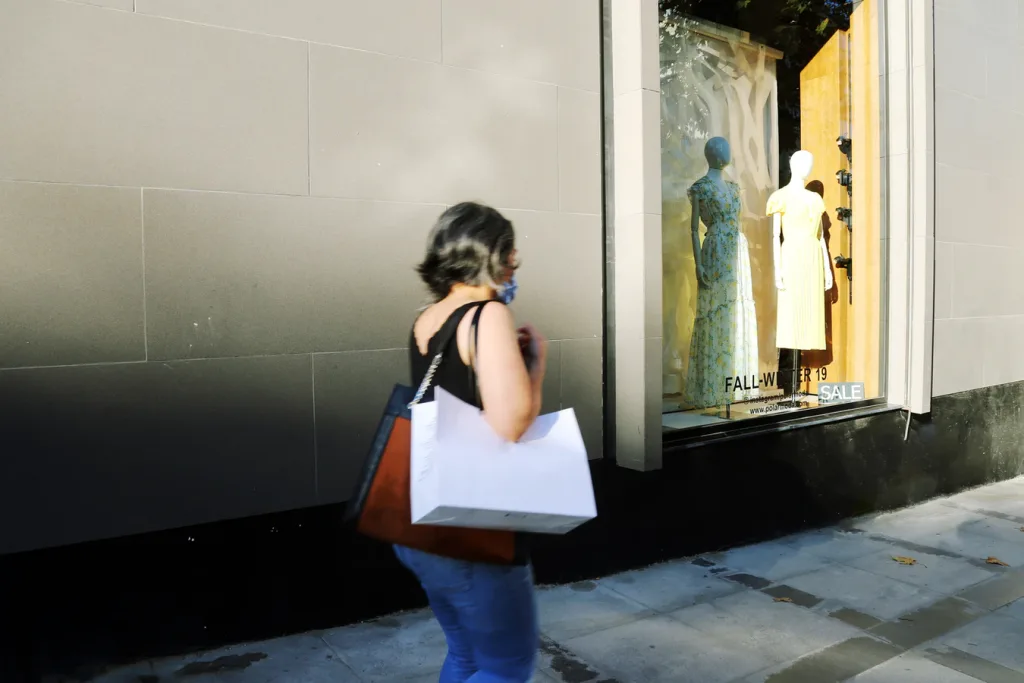The retail landscape is swiftly shifting, and critical to the market – and its many marketing innovations – is consumer data and in particular, the insights that such data brings with it. Over the past two decades or so, high street retailers and digital players have learned from one another, informed by consumer spending trends and a privacy centric-approach to data. The way people shop has been changing, and among such changes is the practice of consumers basing their shopping habits not on their favorite brands or department stores, but on what products they are looking to purchase. In other words, the items that people are shopping for is increasingly determine how they shop.
With that in mind, digital retail will continue to evolve into a commodity or service for purchasing life’s necessities (at the very least), while brick-and-mortar outposts, including those on heavily-trafficked high streets, will continue to preserve the luxury shopping experience and serve as a form of entertainment. At the same time, each can act as a catalyst for the other.
Boohoo, the online fashion retailer that acquired the Debenhams brand and website for £55 million in January, relaunched the stalwart British retailer’s e-commerce site recently – albeit, without popular cosmetic brands, such as Chanel and Yves Saint Laurent, which were missing from the revamped website. According to reports, at least some brands only enter into authorized retailer relationships when there is a physical retail presence at play.
These reports seem to demonstrate the power of brands, while also possibly acknowledging that despite technological advances and shifting consumer preferences, some products, such as fragrances and homeware, still do sell better in-store than online. (Boohoo’s chief executive John Lyttle is reportedly in talks to open “one store and one store only” outside London, in a nod to these consumer behavior trends.)
Data Privacy is Power
For brick-and-mortar retailers to sustain the anticipated post-lockdown bounce in footfall, they must understand their customer base and create a sense of occasion and community experience. Data can support both, but not without careful planning and protection. First and foremost, data capture must be transparent. Brands that are clear about the nature and purpose of data capture can expect customer trust and confidence over time, and thus, retailers that mutually align incentives do best. For example, loyalty cards offer customers discounts and tailored offers, including reminding customers when similar products and services may need to be purchased. This direct customer engagement can persuade shoppers to the high street for special events and new product launches, which are powerful catalysts for products with high brand loyalty.
When it comes to smart products, data can also extend the relationship between brand and customer beyond the initial point of purchase, where product usage data can inform brands when a replacement is needed. A runner who tracks his/her exercises through an affiliated app, for instance, will, as a by-product, create data that indicates when running shoes need replacing, which could, in turn, prompt a special offer from a related retailer. As such, retailers may entice shoppers to physical stores with special discounts to premium brands.
While a data exchange is palatable when paired with a tangible benefit and can even cultivate further brand loyalty, this can become problematic if, for example, data is harvested and sold to third parties with little transparent upfront statements delivered to consumers in a clear and understandable way. Consumers are becoming increasingly attuned to this and many are opting to prioritize brands on the basis of privacy issues. They do not like to be the product unknowingly, which is why brands like Apple are leading the way and putting consumers in control of what data is shared in a consumer-centric approach.
Realigning Relationships
Back on the high street, retailers are working out how best to realign relationships among brands, landlords, and consumers in a post-pandemic environment, mindful of the sector headwinds. FÖMO Store, a pan-European pop-up and flex-retail operator, has created a fresh template that blends physical and digital retail. FÖMO Store works as a micro-department store alongside affiliate, We Are Pop Up, a platform that directly connects brands with flexible retail spaces. The FÖMO Store concept consists of a rotation of diverse brands – across clothing, home accessories, DIY, skincare, sports and even wellness products. Hosted brands can invite shoppers and distributors to FÖMO, which function as the brand ambassadors to promote the products, in a retail-as-a-service format, which can simultaneously reach B2B and B2C.
FÖMO hosts events ranging from live music and book readings to workshops, meditation, and wellness sessions. The emphasis on active community engagement draws parallels with coworking. This “event venue” format also helps to create energy and vibrancy on the high street, while data collected can inform brands of shoppers’ preferences, keep consumers engaged, and provide insight on what products are most successful, while store revenues can be pegged to flexible leases. Moreover, as emerging brands mature and grow, they may ultimately become direct tenants, thereby, giving landlords access to potential future tenants.
Reviving the high street will require retailers and landlords to look beyond the traditional retail formats in order to capture and keep shoppers’ attention. Experimenting with data-driven marketing may help brands and high streets, alike, to stand out in the crowded and rapidly changing retail sector.
Ross McKenzie is a Partner on Addleshaw Goddard LLP’s Commercial Services team supporting a range of clients, including many well-known brand names on their daily commercial needs.













